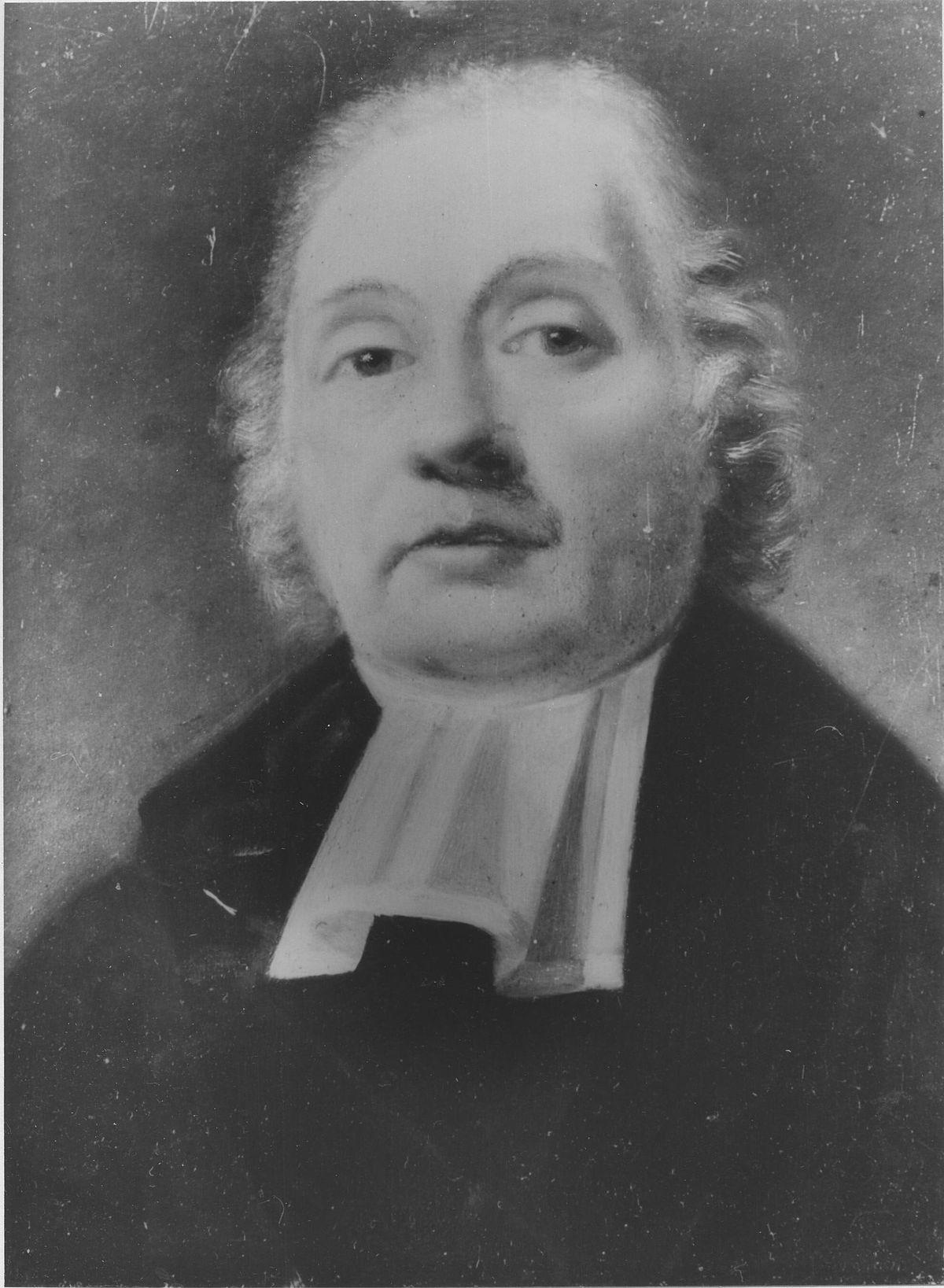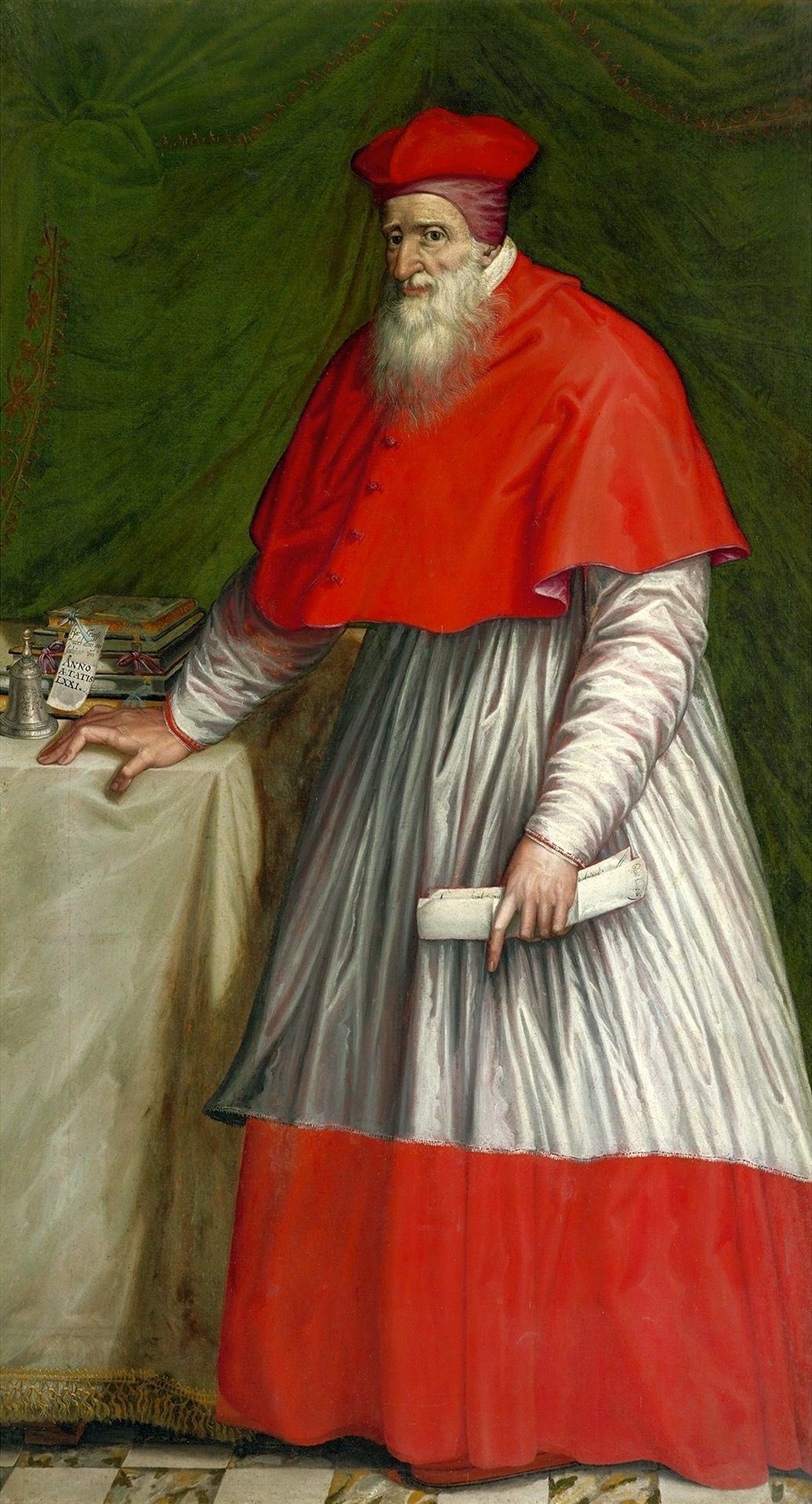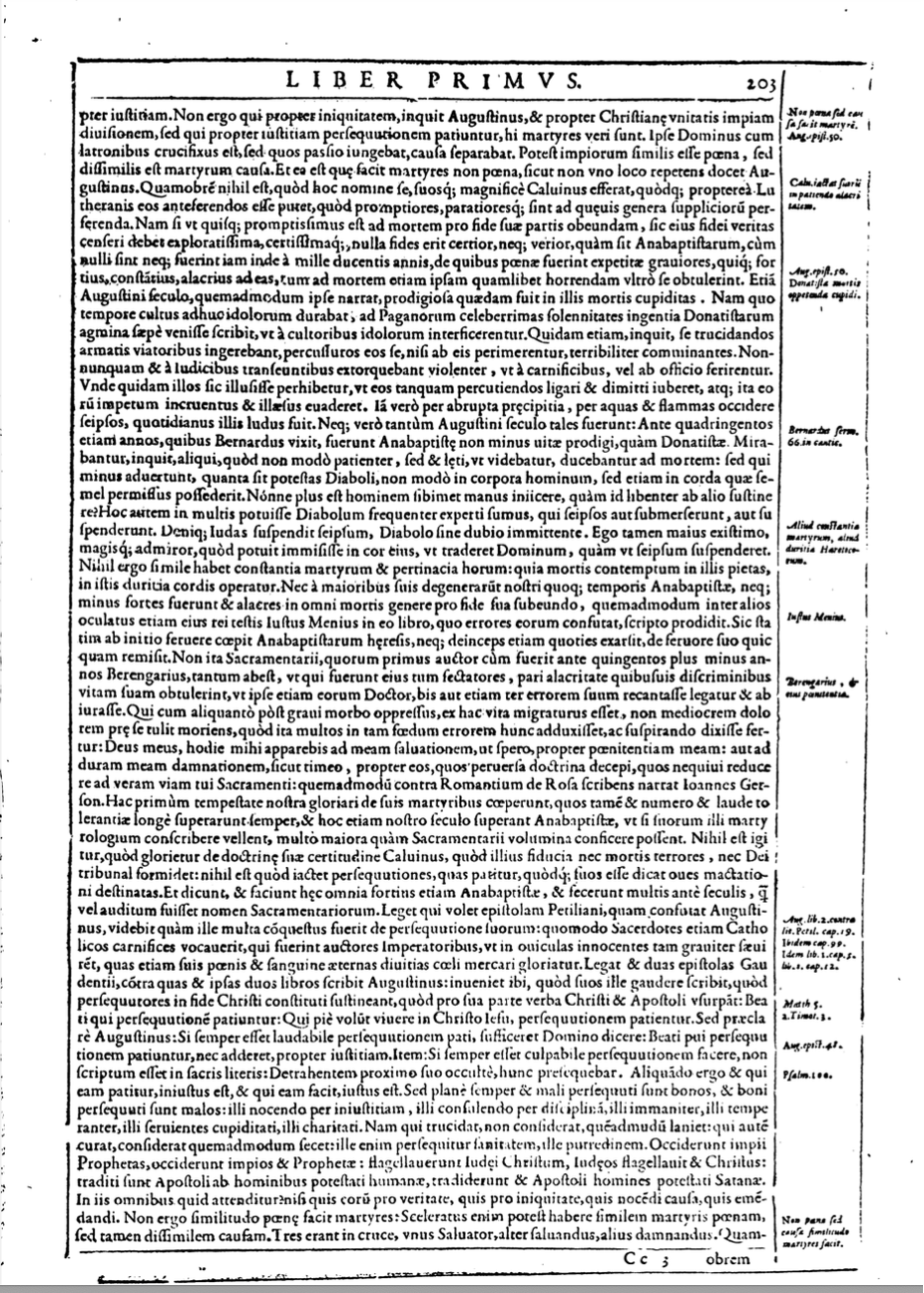Home » Posts tagged 'succession'
Tag Archives: succession
Dutch Reformed Historians Ypeij & Dermount on Baptist Succession
A number of weeks ago we examined the famous Cardinal Stanislaus Hosius quote on Baptist or Anabaptist succession, one often employed by Landmark Baptist writers and in the famous pamphlet The Trail of Blood. We saw that it was legitimate–this great Catholic scholar recognized the existence of Baptist succession. Landmark Baptists also often quote the Dutch Reformed historians Ypeij & Dermout on Baptist succession.
 Reformed historian Annaeus Ypeij
Reformed historian Annaeus Ypeij
For example, J. R. Graves, in his book The Trilemma; Or, Death By Three Horns (J. R. Graves and Son, 1890), 135–136, states the following as proof of Baptist succession:
In the year 1819, Dr. Ypeij, Professor of the University of Gunningen, and Dr. J. J. Dermout, chaplain to the King of Holland, distinguished Pedobaptist scholars, published a history, in four volumes, entitled, “History of the Reformed Church of the Netherlands” — of which Church they were members — in which work they devote a chapter to the history of the Dutch Baptists. I have space for only the frank statement of the conclusion to which their impartial investigation led them:
“We have now seen that the Baptists, who were formerly called Anabaptists, and in later times Mennonites, were the original Waldenses, and who have long, in the history of the Church, received the honor of that origin. On this account the Baptists may be considered the only Christian community which has stood since the apostles, and as a Christian society which has preserved pure the doctrine of the Gospel through all ages. The perfectly correct external economy of the Baptist denomination, tends to confirm the truth disputed by the Romish Church, that the Reformation brought about in the sixteenth century was in the highest degree necessary; and at the same time goes to refute the erroneous notions of the Catholics, that their communion is the most ancient.”
Is the quote by Annaeus Ypeij and Isaak Johannes Dermout accurate? Yes it is! The quote comes from Annaeus Ypeij & Izaak Johannes Dermout, Geschiedenis der Netherlandsche Hervomke Kerk (Breda: 1819-1827), 4 vol, I:148. An English translation appears in John Newton Brown, ed., Encyclopedia of Religious Knowledge (Boston: Shattuck & Co.,1835), 796, Article “Mennonites.” The encyclopedia continues:
“This testimony, from the highest official authority in the Dutch Reformed church, is certainly a rare instance of liberality towards another denomination. It is conceding all . . . the Baptists claim.”
Baptist successionists took care to check the Dutch and confirm the quote’s accuracy. For more on this quotation on Baptist history, please see my article “Famous Baptist Succession / History Quotes in Context.”
Thus, both Roman Catholics and Reformed Protestants admit that Baptists are not Protestants, but have solid historical reasons to view themselves as the churches started by the Lord Jesus Christ Himself, something that is proven by their Biblical doctrine and practice.
–TDR
The Cardinal Stanislaus Hosius Baptist Succession Quote: Is it Legitimate?
The Trail of Blood, by J. M. Carroll, which we commended in a recent Friday’s post, contains the following quote by Roman Catholic cardinal and papal legate to the Council of Trent, Stanislaus Hosius:
Cardinal Hosius (Catholic, 1524), President of the Council of Trent:
Were it not that the Baptists have been grievously tormented and cut off with the knife during the past twelve hundred years, they would swarm in greater number than all the Reformers. (Hosius, Letters, Apud Opera, pp. 112-113).

This Hosius quote is widely reproduced in other Baptist literature contemporary with Carroll. However, many non-Baptists have attacked it as illegitimate. For example, Catholics like to claim that Hosius never said anything like this. Other sources also claim Hosius never said it. Even some sincere Baptists–who, unfortunately, clearly did not know Latin–have said he never said it.
One of the problems with the quotation is that standards for citation in past centuries were not the same as they are now. “Hosius, Letters, Apud Opera, pp. 112, 113” is very hard to trace. Furthermore, when Carroll wrote the Trail of Blood, citations did not necessarily have to include “…,” bracketed letters when capitalization was changed, and so on; it was acceptable and widely practiced to slightly paraphrase quotations. What Carroll and many Baptists in his day wrote was a proper citation back then, but it should be more properly cited now–that is, if it is legitimate. Is it?The answer is Yes! The Roman Catholic cardinal and papal legate to the Council of Trent Stanislaus Hosius definitely did make a statement to this effect. Baptists should have no qualms whatever with citing this leading Roman Catholic as evidence of their ancient heritage, far, far before Protestantism. Those who deny that he ever said it do not seem to have taken the time to investigate the matter properly or were ignorant of Latin. (Perhaps a good reason to learn Latin, no?) What they should do, though, is cite the quote in a manner that suits the 21st century. Here is an accurate citation of Cardinal Hosius–this is the quote to use:
For if so be, that as every man is most ready to suffer death for the faith of his sect, so his faith should be judged most perfect and most sure, there shall be no faith more certain and true, than is the Anabaptists’, seeing there be none now, or have been before time for the space of these thousand and two hundred years, who have been more cruelly punished, or that have more stoutly, steadfastly, cheerfully taken their punishment, yea or have offered themselves of their own accord to death, were it never so terrible and grievous. . . . If you will have regard to the number, it is like that in multitude they would swarm above all other, if they were not grievously plagued, and cut off with the knife of persecution.
This translation comes from Richard Shacklock’s translation of Hosius’ Latin in a work entitled The Hatchet of Heresies: A Most Excellent Treaties of the begynnyng of heresyes in oure tyme, compiled by the Reuerend Father in God Stanislaus Hosius, etc. (Antwerp: Aeg. Diest, 1565; Ann Arbor: Early English Books Online Text Creation Partnership, 2011), 44-49.You can find the original Latin Shacklock is translating in Stanislai Hosii S. R. E. Cardinalis, Episcopi Varmiensis, In Concilio Tridentino Legati Opera Omnia Hactenus Edita, In Unum Corpus Collecta (Venice: Apud Franciscum Francisci, 1632), 203, sec. De Haeresibus Nostri Temporis. Here is a screenshot of the Latin text If you know Latin, you can see the quotation near the top of the page.So the quotation about Baptist succession by Roman Catholic cardinal Stanislaus Hosius is absolutely accurate, and he certainly did say it. Those who deny that he said it failed to research the matter properly.If you would like to read the quote in greater context, or see links to the places where you can get Shacklock’s translation of Hosius or Hosius’s original Latin, please read my article “Famous Baptist Succession / History Quotes in Context” by clicking here. I supply lots and lots of context. So you can use the Cardinal Hosius quote–shout it from the housetops. Just cite it correctly so people do not have a reason to doubt its accuracy.Scripture teaches Baptist church polity and Scripture teaches an actual succession of churches from the first Baptist church, organized by Christ from those baptized by the first Baptist–John the Baptist–the greatest man who had lived other than Christ up to that time (Matthew 11:11). External historical data, such as the testimony of Cardinal Hosius to Baptist succession, support the infallible truth of Scripture, which proves that Baptist churches are the churches of Jesus Christ, founded by the Savior during His earthly ministry and preserved from that time until the present day. All other religious organizations that claim the name of Christian, unfortunately, are more akin in God’s eyes to the Roman Catholic whore of Babylon (Revelation 17) and her Protestant daughters (Revelation 17:5) than to the pure bride of Christ (2 Corinthians 11:2; Ephesians 5). If you are reading this and have not been born again, you should immediately repent and believe the gospel, being justified by faith alone apart from works. Then immediately attend, be baptized into and serve the Triune God in a faithful independent, unaffiliated Baptist church–the kind Christ started in the first century, the kind for which He loved and died and His bride (Ephesians 5:25). If, by His grace, you love Christ, you must and will keep His commandments (John 14:15).
If you know Latin, you can see the quotation near the top of the page.So the quotation about Baptist succession by Roman Catholic cardinal Stanislaus Hosius is absolutely accurate, and he certainly did say it. Those who deny that he said it failed to research the matter properly.If you would like to read the quote in greater context, or see links to the places where you can get Shacklock’s translation of Hosius or Hosius’s original Latin, please read my article “Famous Baptist Succession / History Quotes in Context” by clicking here. I supply lots and lots of context. So you can use the Cardinal Hosius quote–shout it from the housetops. Just cite it correctly so people do not have a reason to doubt its accuracy.Scripture teaches Baptist church polity and Scripture teaches an actual succession of churches from the first Baptist church, organized by Christ from those baptized by the first Baptist–John the Baptist–the greatest man who had lived other than Christ up to that time (Matthew 11:11). External historical data, such as the testimony of Cardinal Hosius to Baptist succession, support the infallible truth of Scripture, which proves that Baptist churches are the churches of Jesus Christ, founded by the Savior during His earthly ministry and preserved from that time until the present day. All other religious organizations that claim the name of Christian, unfortunately, are more akin in God’s eyes to the Roman Catholic whore of Babylon (Revelation 17) and her Protestant daughters (Revelation 17:5) than to the pure bride of Christ (2 Corinthians 11:2; Ephesians 5). If you are reading this and have not been born again, you should immediately repent and believe the gospel, being justified by faith alone apart from works. Then immediately attend, be baptized into and serve the Triune God in a faithful independent, unaffiliated Baptist church–the kind Christ started in the first century, the kind for which He loved and died and His bride (Ephesians 5:25). If, by His grace, you love Christ, you must and will keep His commandments (John 14:15).
A Defense of the Trail of Blood by James M. Carroll as Accurate Landmark Baptist History
Have you ever read the pamphlet The Trail of Blood by James M. Carroll? It is a classic presentation of the true history of Baptists–that they had an actual succession of churches from the time of Christ, who founded the first Baptist church, throughout the patristic, medieval, reformation, and modern eras until today. If you have not read it, you should do so. I have a link to a free electronic version in the ecclesiology section of faithsaves.net. You can buy a physical copy at the Lehigh Valley Baptist Church bookstore, among many other places. You can even get a copy at Amazon (affiliate link):
However, Amazon will probably charge more than what you would pay from a church-run Baptist publisher, although if you are getting a bunch of other stuff at Amazon anyway, maybe with free shipping their price will be acceptable.
The Trail of Blood gets a lot of criticism. However, that criticism is unjustified.
1.) The Trail of Blood is narrow-minded!
The Trail of Blood is criticized for its teaching that only Baptist churches are true churches, the kind established by Jesus Christ and preserved from Christ’s day until today. However, Baptist churches are the kind of churches established by Christ, a fact validated by their doctrine and practice, and the Bible promises that the churches Christ established would continue until His return (Ephesians 3:21; Matthew 16:18; 28:20, etc.). The promise of succession for Christ’s churches is not given to the “universal church,” for there is no such thing. Scripture, in the Great Commission and other passages, promises an actual succession of true churches. Scripture teaches what is called the Landmark Baptist view of church succession, and Scripture teaches that each true church is Christ’s bride, and so a “Baptist bride” (an ecclesiological, not a soteriological, assertion–one is in the kingdom through repentant faith alone, not through baptism into the Lord’s church).
2.) The Trail of Blood claims non-Baptist groups were Baptists!
First, one must keep in mind that the Trail of Blood is a large pamphlet, designed for a popular-level audience, not a scholarly book. It is too short to give nuance to every single statement that someone might argue about. Second, Roman Catholicism liked to lump everyone together who was not a Catholic and put the worst possible interpretation on their beliefs, something ancient pagans and post-Reformation Protestants were also not immune to doing. To consider some generally accepted examples, ancient pagans who asserted early Christians were cannibals who committed incest because Christians talked about the “body of Christ” in conjunction with “eating” and “drinking,” and they referred to each other as “brother” and “sister” were grossly inaccurate. Reformation-era opponents of Baptists who said that they were violent people who wished to overthrow the State grossly misrepresented the fact that a huge percentage of the Anabaptists were outright pacifists to smear the entire body of those who practiced believer’s baptism with the actions of a few at the city of Munster (many of whom were not even practitioners of believer’s baptism there). So we should not be surprised if Roman Catholics painted groups of dissenting Christians in the worst possible light.
Think about it this way: if by “Anabaptist” a Catholic simply means someone who baptizes believers, he would classify people who believe like a strong independent Baptist church, people who believe like the Watchtower Society, people in the American Baptist Convention who support sodomy and follow woman preachers who deny the inspiration of Scripture, Pentecostals who handle snakes and drink poison, people in the Iglesia Ni Cristo who think Felix Y. Manalo is the final prophet from God, and Mormons as “Anabaptists.” The Catholic could say that “Anabaptists” deny the Deity of Christ, believe in extra-scriptural revelations, believe Satan and Christ are brothers, believe sexual perversion is acceptable, deny the Bible is the Word of God, and handle snakes in their church services. However, that people who do these evil things also baptize believers does not mean that there are not thousands and thousands of people in independent Baptist churches that follow Scripture faithfully. If the situation is such in our day, should we be surprised that medieval Catholics painted those Anabaptists whom they slaughtered and tortured in the worst possible light?
There are many groups of non-Catholic believers in Christianity before the Reformation. Historical sources on some of them are better than for others, but there is sufficient evidence to believe that among groups such as the Waldenses, Cathari, and Anabaptists Christ’s promise of church perpetuity was fulfilled. That does not mean that every person who identified with these groups had sound beliefs, any more than it means that everyone in Oklahoma who says he is a Baptist has sound beliefs. But it is absolutely rational to believe that the line of true churches promised in Scripture is contained among such groups.
3.) The Trail of Blood takes quotes by historical sources out of context or makes up quotes!
Lord willing, we will deal with a few of these quotes in upcoming weeks. If you want a preview, please see the quotations by non-Baptist historians here in their context.
In summary, the Trail of Blood is a valuable historical source demonstrating the Scriptural truth that Christ has kept His promise to preserve His churches. It does a good job for a large pamphlet. If you have not read it, I encourage you to do so, and to share it with others, so that everyone in the world who is born again sees his need to unite with a Bible-believing Baptist church through baptism and serve the Lord Jesus Christ in His New Testament temple.
–TDR
Recent Comments